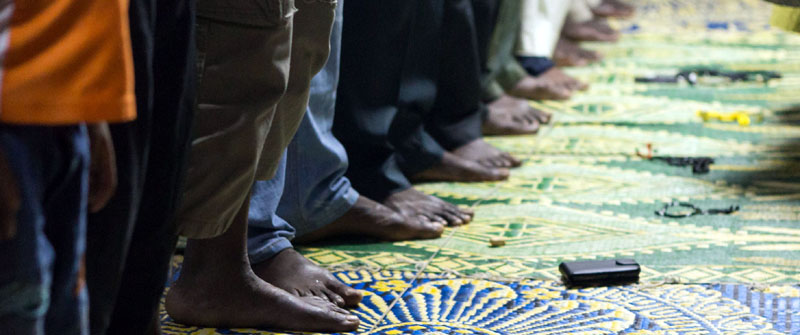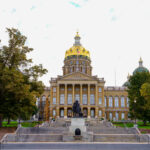
WASHINGTON (BP) – Human rights leader Katrina Lantos Swett was shocked by the way her mother, a Holocaust survivor, reacted when the Swetts hung on their door a mezuzah evidencing their Jewish faith.
“She said, ‘Oh Honey, is it safe to put it outside the door? In Hungary we have posted the mezuzah, but we only had it inside our apartment, not outside where anyone could see it.’”
The exchange, which Lantos Swett shared as a panelist at the 2024 International Religious Freedom Summit she co-chaired, occurred after Hamas killed 1,200 Israelis and foreigners in an attack on southern Israel.
Lantos Swett’s mother is not alone in her caution amid spiking anti-Semitism during the Israel-Hamas War, according to Julie Rayman, the American Jewish Committee’s (AJC) managing director for policy and political affairs.
About 46 percent of Americans who are Jewish are responding to anti-Semitism by being less vibrant in displaying their Jewish faith, Rayman said, citing findings from a new survey she said the AJC is preparing to release. Many Jewish Americans are reticent to display their faith by hanging a mezuzah, wearing the kippah or yarmulke cap, or attending synagogue.
“In my own family my children are of the age where they would start Hebrew school, and my husband said, ‘Nah, let’s wait a year,’ for exactly that reason,” Rayman said on the Jan. 31 summit panel on countering the global surge in anti-Semitism. “And that I think is really troubling.”
Aaron Keyak, the U.S. State Department’s deputy special envoy to monitor and combat anti-Semitism, joined Rayman and Lantos Swett on the panel, one of several events held at the summit to engage and unify global support for religious freedom for peoples of all faiths.
Anti-Semitism is evidenced, Keyak said, in the choices many have made in demonstrating against Israel’s war efforts. Many are blaming Jewish Americans for the choices of a foreign government, using the war to voice their anti-Semitism.
“What we know is when you blame the Jews, hold Jews accountable for actions of the Israeli government in Jerusalem, or by the way for any government, that’s anti-Semitic,” Keyak said. “It would be absurd, it wouldn’t even compute, to go in front of a Chinese restaurant to protest the actions of the PRC (People’s Republic of China) because you disagree with how they’re treating the Uyghurs.
“But yet it feels so comfortable throughout the world, including unfortunately here in America – specifically in Washington – to blame Jews,” he said, “to attack Jews, to target Jews because of the actions of a foreign government.”
Some even chose the synagogue Keyak attends in Washington to hold protests, he said. The Alliance Defending Freedom reported 1,317 such protests in the U.S. in the three months following the start of the Israel-Hamas War.
Those disagreeing with Israel’s war tactics could more reasonably protest at such sites as the Israeli Embassy or even the U.S. State Department, Keyak said, “but to choose a religious institution and blame Jews for the decisions of the Israeli government, that’s a choice.”
Lantos Swett, president of the Lantos Foundation for Human Rights and Justice, applauded Muslim women standing with Jews in fighting anti-Semitism, often risking their lives to do so. She and other panelists encouraged those of other faiths to find ways to support the persecuted of all faiths.
Lantos Swett has advocated broadly for religious freedom, having served as chair and vice chair of the U.S. Commission on International Religious Freedom, and held other posts internationally.
“Solidarity, standing with the victims, it matters. And we honor it and are grateful for it when it happens,” Lantos Swett said. “When you stand up for your Jewish friends and neighbors, for those Jewish girls raped and brutalized, you deserve to be proud too, especially if you are not of that heritage.”
The Southern Baptist Ethics & Religious Liberty Commission (ERLC) was among convening partners of the summit held Jan. 30-31 in Washington.
“As Southern Baptists, we have a rich history of advocating for a government that safeguards the ability for us to live according to our deeply held beliefs found in Scripture,” ERLC Policy Associate Allison Cantrell has said.
“By taking part in the fourth annual summit, we also deepen vital partnerships to protect the religious liberty of all people around the world,” Cantrell said, “as we recognize infringements upon religious liberty ultimately inhibit the work of our missionaries and churches in fulfilling the Great Commission.”
Summit leaders have announced plans to post videos of the event as early as Feb. 4 at IRFSummit.org.
–30–



















